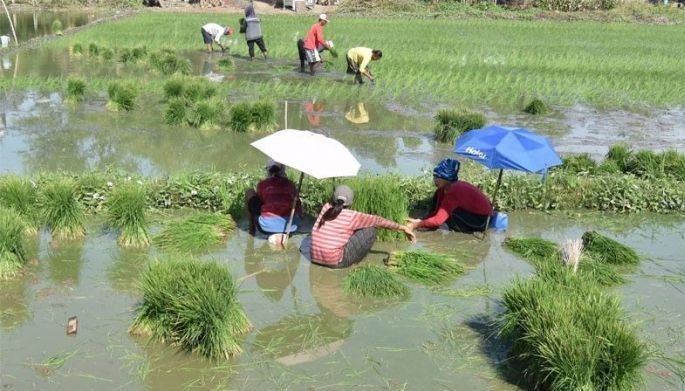MANILA, Philippines — The Department of Trade and Industry (DTI) acknowledged the need to empower farmers with entrepreneurship skills in order to boost agricultural productivity and profitability.
“We at DTI recognize that farmers must be empowered by equipping them with right knowledge, skills, and guidance from experts in the field of entrepreneurship,” Trade Secretary Alfredo Pascual said in a statement yesterday.
“KALAP will facilitate this, and we expect this to pave the way to increase agricultural productivity and profitability,” he added, referring to Go Negosyo’s Kapatid Angat Lahat Agri Program (KALAP).
KALAP is a public-private sector partnership initiative that aims to promote inclusive economic growth using Go Negosyo’s framework of providing micro, small and medium enterprises access to money, markets and mentoring.
The program aims to help the country’s MSMEs in the agriculture sector by integrating them into the value chain of large operations and develop agripreneurs to be globally competitive.
Go Negosyo founder Joey Concepcion signed a memorandum of agreement with various government agencies on Monday for the program, which symbolizes the strong partnership of the private and public sector.
Government agencies that signed the MOA include the DTI, Department of Agriculture, Department of the Interior and Local Government and the Department of Environment and Natural Resources.
The agreement was also signed by representatives from the National Irrigation Administration, National Tobacco Administration, Philippine Coconut Authority and the National Commission on Indigenous Peoples.
The signing of the MOA was witnessed by President Marcos.
“Through KALAP, DTI and Go Negosyo seek to establish strategic partnerships with various government agencies, businesses, academic institutions, financial institutions, non-government organizations, and local government units (LGUs) to promote globally competitive agriculture and inclusive agricultural growth and development in the Philippines,” the DTI said.
“These partnerships are set to facilitate the conceptualization and development of partnership objectives, alleviate poverty in the agriculture sector through the implementation of inclusive agri-business programs, transform agricultural commodities and industries, implement an integrated and inclusive agricultural development program, promote a value chain approach to the agriculture industry through strategic partnerships, and achieve prosperity for all,” it added.
Pascual said the partnership aims to empower local farmers, capacitate them with the right knowledge and skills, and increase their competitiveness as the country liberalizes its economy in pursuit of development goals.
“We must ensure that as the country develops, no one should be left behind,” Pascual added.
For his part, Concepcion explained that KALAP is where agriculture meets job creation.
“It is the platform where we hope to employ as many Filipinos as possible, and it will do so where our job creation efforts can have the most impact: in the agriculture sector,” Concepcion said.
“KALAP is [a] public-private partnership at work, and perhaps the most important PPP that we will undertake,” he added.
According to the Philippine Statistics Authority’s Labor Force Survey as of December 2022, the agriculture sector accounts for nearly a quarter of the total number of jobs, or 11.76 million, in the Philippines. The DTI meanwhile, estimates that MSMEs generate as much as 65 percent of jobs.
“It is in agriculture that we find a large number of the micro entrepreneurs – the micro farmers, and it is they who need the most help. It is in this sector where a multiplier effect of jobs and enterprises, growth in communities away from the urban centers, can happen,” Concepcion said.


